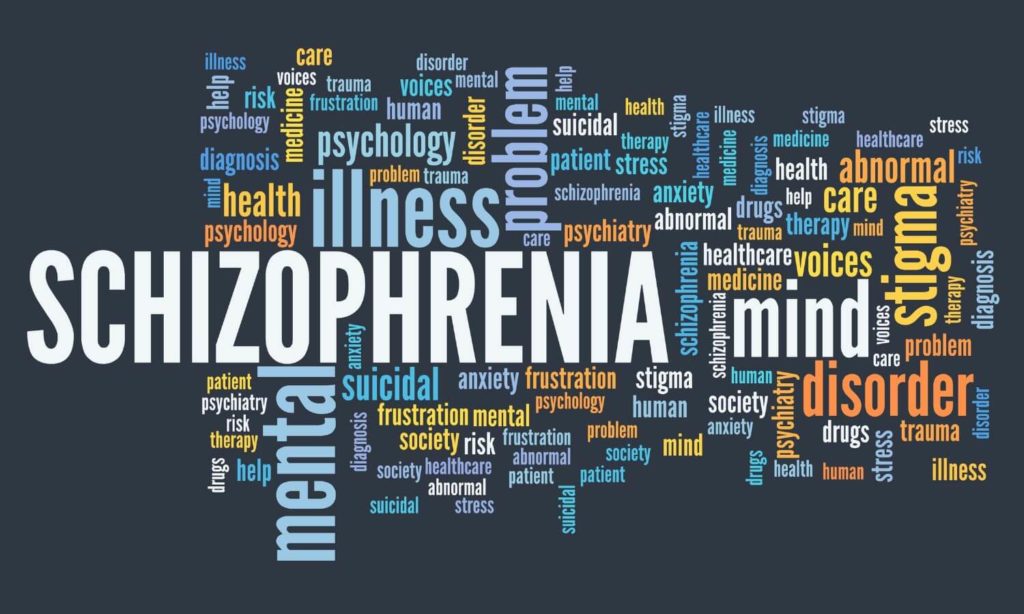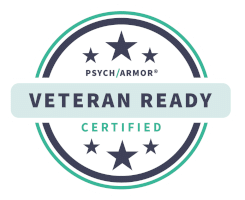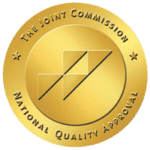The month of May is Mental Health Awareness Month, a time to draw attention to the impact of all types of mental disorders. Organizations across the nation have come together every year since 1949 to fight stigma, increase support, and advocate for those struggling with their mental health.
Individuals with mental illnesses of all kinds still deal with plenty of misconceptions, but one condition stands out from the rest: schizophrenia. While more people understand conditions like depression and anxiety, schizophrenia is still very much misunderstood.
World Schizophrenia Day, observed on May 24th every year, is an important part of Mental Health Awareness Month. It brings awareness to a condition that causes some of the most severe and life-altering symptoms of all mental illnesses. Mental health professionals hope to change the way the general public sees and understands individuals living with schizophrenia.
Although schizophrenia is a lifelong illness, different types of treatment for schizophrenia are available. Treatment doesn’t cure the condition, but it may offer periods of remission and some relief from more severe symptoms. On the other hand, when schizophrenia is left untreated the persistent symptoms may leave the person unable to care for themselves.
Continue reading to learn more about schizophrenia and the types of treatment available.
What is Schizophrenia?
Schizophrenia is a serious mental illness that affects the way a person thinks, feels, and acts. Their divergent thoughts and behaviors are the result of an abnormal interpretation of reality. Schizophrenia causes severe symptoms such as disordered thinking, delusions, abnormal motor behavior, hallucinations, and more.
Symptoms of schizophrenia fall into one of three categories:
- Psychotic symptoms: Psychotic symptoms include altered perceptions (e.g. visual, auditory, or tactile hallucinations), atypical thinking (particularly delusions), and unusual behavior
- Negative symptoms: Negative symptoms include social withdrawal, disinterest in normal activities, loss of motivation, having problems with expressing emotions, and difficulties with daily functioning
- Cognitive symptoms: Cognitive symptoms include troubles with concentration, attention span, and memory
Signs of schizophrenia often start to appear between a person’s late teenage years to their early thirties. Symptoms tend to emerge in males earlier than they do in females. Men are usually diagnosed from late adolescence to their early twenties while women are diagnosed from their late twenties to early thirties.
Diagnosis typically takes place following the onset of an individual’s first episode of psychosis. Their thinking, mood, and social functioning begin a gradual decline after the first episode and worsen over time, particularly when left untreated.
Types of Treatment for Schizophrenia
As people with schizophrenia get older, their symptoms can progress in severity. Seeking treatment as soon as possible can offer some relief and limit the extent to which their symptoms progress. Treatment for schizophrenia does not cure the condition but it can provide tools to alleviate and manage its effects.
Medication and psychotherapy are the two main types of treatment for schizophrenia. Both approaches are required for effective and lasting results. Additionally, there is no one-size-fits-all approach; each person requires an individualized treatment plan tailored to their particular needs.
Medication
Antipsychotic medications are one critical component of treatment for schizophrenia. They reduce the severity of intrusive thoughts and behaviors related to an episode. Taking medication tends to be effective for most individuals and is beneficial when used continuously.
There are two main classes of antipsychotic medication: typical antipsychotics and atypical antipsychotics. Most medications for schizophrenia come in pill form and are taken daily. Some atypical antipsychotics also come in the form of long-acting injectable medication. Each individual should consult with their doctor to determine which type is best for their situation.
Typical Antipsychotics
Typical antipsychotics, also called traditional antipsychotics, were first introduced in the 1950s. They function by blocking dopamine receptors to control or relieve confusion, delusions, and hallucinations. Some of the typical antipsychotics available include:
- Haloperidol (Haldol)
- Loxapine (Loxitane)
- Perphenazine (Trilafon)
- Chlorpromazine (Thorazine)
- Fluphenazine (Prolixin)
Atypical Antipsychotics
Atypical antipsychotics were first used in the 1990s as an alternative medication for treating schizophrenia. These medications interact with both serotonin and dopamine receptors to relieve both psychotic and negative symptoms. Some of the atypical antipsychotics used today include:
- Olanzapine (Zyprexa)
- Risperidone (Risperdal)
- Quetiapine (Seroquel)
- Lurasidone (Latuda)
- Aripiprazole (Abilify)
- Clozapine (Clorazil)
Injectable Medications
Again, most antipsychotic medications come in pill form and are taken orally every day. Some atypical antipsychotics are also available as long-acting injectables. These medications last a few weeks or months which makes it easier to avoid inconsistent dosing. Many people prefer this option when it’s available to them.
Psychotherapy
Medications are a helpful part of treatment for schizophrenia, but they do not address every aspect of the condition. Psychotherapy helps fill the gaps left by medication and teaches individuals to manage their symptoms to improve their quality of life. Many different therapeutic approaches are useful when working with people who have schizophrenia.
Cognitive Behavioral Therapy (CBT)
Cognitive behavioral therapy is one of the most-used forms of therapy today. Psychologists focus on challenging and changing negative or false thoughts which result in changed behavior. CBT teaches individuals with schizophrenia healthy coping skills to manage symptoms that medication doesn’t relieve.
Acceptance and Commitment Therapy
Acceptance and commitment therapy is a form of psychotherapy based on mindfulness practices. It aims to teach individuals to accept and tolerate symptoms as a way to improve their quality of life.
Cognitive Enhancement Therapy
Cognitive enhancement therapy is a type of treatment for schizophrenia that uses group sessions and training games to enhance cognitive abilities. Its effectiveness is actively being researched through the National Alliance on Mental Health.
Supportive Psychotherapy
Supportive psychotherapy focuses on present problems and how best to address and resolve them. Unlike other forms of psychotherapy that look to the past to solve present-day issues, supportive psychotherapy teaches practical skills that can be put into application immediately.
Group Therapy
Group therapy uses various modalities to work with groups of individuals. Using group therapy can be helpful as it encourages individuals to build interpersonal skills and communication skills. It also helps them practice social skills and build relationships with others.
Finding Treatment for Schizophrenia
Finding effective treatment for schizophrenia can feel like a daunting task. Misconceptions and misunderstandings make it an isolating condition both for the individual as well as their loved ones. Navigating the treatment options available to you can be difficult and overwhelming, especially when you’re trying to do it alone.
Pasadena Villa is a co-ed residential treatment facility that offers individualized treatment for schizophrenia. We have multiple locations to meet the needs of individuals across the United States looking for help. Whether you’re looking for full residential or day treatment services or the adaptability of an outpatient program, Pasadena Villa is here to help.
We understand the complexity that comes with treating schizophrenia but are dedicated to providing caring and successful services for our clients and their families. Each individual and their family are different and we meet you where you are with our tailored approaches to treatment. Your loved one and your entire family have our full support from the moment you reach out for help.
Whether this is your loved one’s first time seeking treatment or they have received treatment services before, we can provide the assistance you’re looking for. Call us with any questions you may have and let us know what we can do to help you today





